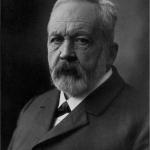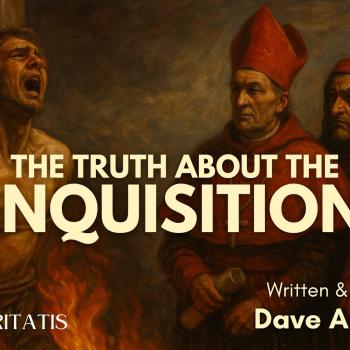
Biblical examples clearly indicate the general principle that offices are not annihilated by sinful occupants.
***
A Protestant (words in blue below) asked me:
In your section on ‘Rome’ you note that it suffered, ‘periodic moral decadence, a few weak or immoral popes..’ Yet you are not bothered that the holder of an ‘infallible’ office ( yes I know it’s only at ‘times’), can be ‘immoral’? I don’t just mean falls into sin like everyone does sometimes, but actually ‘immoral’ as a characteristic, a lifestyle?
Of course Catholics are bothered by it (all sin should disturb us), but we are not surprised. What happened, though, was that the very few popes who were scoundrels never issued any theological decrees to speak of, so they didn’t subvert God’s plan, any more than Bill Clinton has ruined the American Presidency as an institution forever, because of his disgraceful sexual behavior and compulsive lying. The office exists separately from the man, in the final analysis. Remember, too: infallibility is not impeccability. Moses, David, Paul, Matthew, and Peter wrote infallible Scripture, and they were all very great sinners at one time or another.
God has spoken through immoral people in the past to be sure. But as a routine office when they were immoral by lifestyle, not just isolated incidences?
Yes. David had an ongoing adulterous affair, for which he was punished after he was forgiven (there’s a proof of Catholic penance and temporal punishment for you). Yet God didn’t withdraw the eternal covenant he had made with David, and Jesus was descended from him.
The moral defects of the “Reformers” are there for all to see who care to see. Yet Protestants think nothing of deriving their distinctives from these sinful men. These guys are the very Founders of Protestantism. They exercised far more prerogatives and power over their flocks than any pope ever dreamt of. Luther claimed to be God’s mouthpiece; so did Calvin, in effect. By what authority did they dare say that? None except their own self-appointed “authority.” So I would say that this criticism merely redounds back much more forcefully onto your system.
And after Christ?
Yes, Peter!!!! But Jesus nonchalantly accepts this failing (Lk 22:31-34) and sees it as no contradiction against his exalted office, which our Lord Himself appointed him to.
The apostle Paul continually holds himself up as an example to be followed, and expects other leaders in the Church to be able to do likewise, (Timothy for example). Yet you are suggesting the highest Church leader is immune to this requirement, so long as his theology when he makes ‘infallible’ statements is correct????
Of course he is not immune to moral standards at all, but in terms of whether or not a sinning pope detracts from infallibility itself, the Catholic outlook is not a concept foreign to the Bible or to the Apostles. St. Paul accepted the authority of (and even showed deference to) the high priest of Israel, who wasn’t even a Christian! (Acts 23:1-5). Jesus instructed the Jewish people to continue to follow the Pharisees’ teaching, despite their hypocrisy:
Matthew 23:2-3 (NRSV) The scribes and the Pharisees sit on Moses’ seat; therefore, do whatever they teach you and follow it; but do not do as they do, for they do not practice what they teach.
Infallibility is not a protection from sin. Obviously, we hope that popes will be holy, and they are chosen on that criteria, and the great majority have been (compare the popes to, e.g., the patriarchs of Constantinople, if you want to see a great contrast). But again, this criticism is much more telling against Protestantism, once one understands how that movement began.
This seems to be not only an unbiblical suggestion but also a good example of the ‘essential’ difference between Rome and Orthodoxy.
The Orthodox must separate office from corrupt occupants, because they had so many heretical patriarchs in the East in the first eight centuries. I don’t think the difference here is that great. They also have their share of scandalous conduct such as massacres of Latins, etc. (no large group’s hands are ever totally clean). See: “Sack of Constantinople (1204) & Unknown Byzantine Atrocities.”
***
(originally from 1998)
Photo credit: The Denial of Saint Peter, by Adam de Coster (c. 1586-1643) [public domain / Wikimedia Commons]
***













